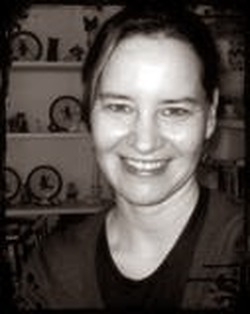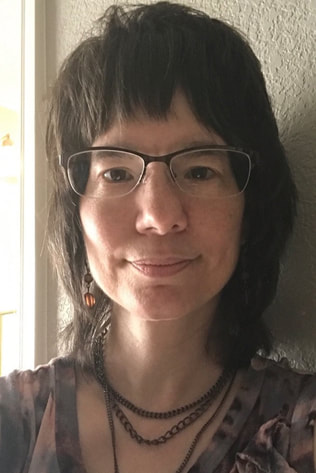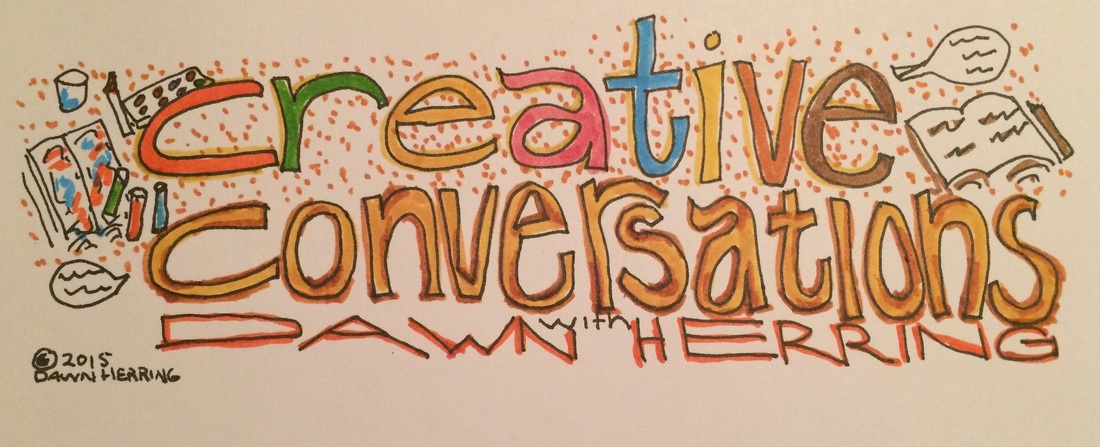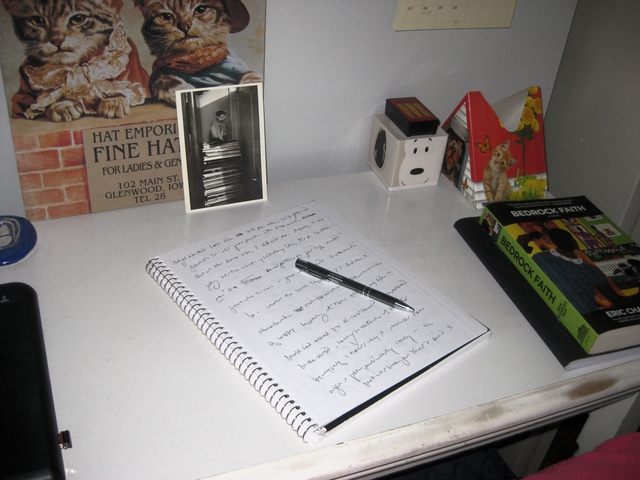|
9/22/2015 Refresh Daily Interview: Life Coach and Journal Keeper, Jill Winski, of The Artist's NestRead NowI am so excited to share with you an interview, or what I like to call, a Creative Conversation, with one of my favorite people, Jill Winski, dear friend and fellow journal keeper, previous Special Guest of #JournalChat Live a few times over, and active member of our #JournalChat Live Facebook Group. She is a Certified Martha Beck Life Coach and Creativity Coach and founder of The Artist's Nest; and I had such a fabulous time talking with Jill about journal keeping, creativity, and positive change that leads to personal empowerment. Jill shares an insightful and profound journal keeping journey. I trust you will enjoy what follows with the juiciness of what it means to be At Home in our Journals and Aligned with Who We Are. Without further ado...the creative conversation with Jill Winski:  Dawn: I just re-read your post from our #JournalChat Live OPEN HOUSE in June, 2015, Hearing My Voice In a Noisy World, and it still touches my heart about how your journal is Home and a Safe Place for you. When was the very first time you wrote in a journal? How old were you? And how was that different from the time you were 12 at school? What kind of a foundation did it help you create in your childhood? Jill: I think the very first time I wrote in a journal was when I was about five! It was a "diary" with a lock and a key. I believe I was just learning to write and I wrote things like "what I did today" or "my favorite foods." A little later, when I was maybe 8 or 9, my mom bought me some blank books and I used those to write stories that were based on my own life. So you could say they started out as journal entries but as I wrote they became fiction! Looking back, I do think these blank books created a foundation of writing things down as a way of expressing myself very early in my life. I don't think the "true" journaling took hold until I was 12 and began to write in depth about what I was feeling and started to use the journal to process and understand my inner world, as I described in that blog post. Dawn: LOVED your journaling start, Jill. The details of the beginnings of a diary/journaling practice can be so inspiring, especially when you can see clearly what benefited you in that very early time...which led to more writing for you, even fiction. From the time you were 12 and began a deeper, more introspective journaling, were there other activities that you engaged in that really inspired you and refreshed you as a young person? And was the journaling a part of those activities, such as describing those experiences in your journal, or were they entirely separate? Jill: One thing I did a lot as a child was organize my classmates and neighborhood kids into putting on plays and other sorts of productions. I remember a lot of running around barefoot in the summer telling people what roles they were going to play. (I think I was considered rather bossy!) I also loved reading -- particularly Judy Blume and Madeleine L'Engle at that age -- and being with animals (still do!). And rollerskating and collecting Breyer model horses. :) Now, here's the interesting thing -- at around 12, I began to become pretty critical of myself. I think I became very aware of and concerned about what other kids thought of me, and, interestingly, this is when the journaling began to overlap with those other activities. So, the journaling came to my aid at that time -- it was a way of sorting out this self-consciousness and judgment I'd begun to feel toward myself. As I remember it, the journaling was very much integrated with other activities and I'd reflect on how things went. Actually, when I was packing to move just a couple weeks ago, I found a comic book I'd written at age 12 about a superhero rabbit. That was the kind of thing I'd do at that time, and it's likely I brainstormed that idea in my journal and then probably journaled about whether I was happy with the result or not! Dawn: What delight to learn of your "directing" role with your friends in the neighborhood, putting drama as center stage! Love it. So, when you became more conscious of other's opinions of you, that's when journaling took on a more vital role, helping you gain clarity on what was working and how you felt about each life experience. Brainstorming ideas was a great way to see what you wanted to experiment with. Do you think that your journaling played a role in determining your identity as a person? Did it help you discover on a deeper level Who You Were and Who You Were Becoming? Did you stay motivated to keep a journal as you entered your youth? Jill: Oh, most definitely journaling played a big role in my identity -- and the journal has been a sort of "witness" as my identity has changed over the years. I think the deep processing I've done in my journal over the years has been key to my understanding myself, and integrating what I'm going through and discovering about myself into the whole of who I am and my life. As I got into young adulthood, that's when journaling began to take on an even bigger role for me. Around my early 20s was when I started to do a deeper kind of journaling, where I was really using it to understand myself. I think it became a form of meditation for me -- like other practices that can help you connect with the self, but then also something greater than the self. So yes, I stayed with journaling quite naturally as I got into my teens and on into my 20s. It's always been something I feel compelled to do -- there's no "motivation" involved. I do it compulsively! :) Dawn: What you said about being compelled to journal feels so resonating to me, since I'm the same way with my journaling practice. I don't need motivation either; it's just part of Who I Am. Speaking of that, for you, Jill, seeing that journaling is such a powerful and essential tool in your life in developing your identity, have you been able to recognize, through your journaling practice, when you have not been aligned with Who You Are and how has journaling promoted positive change to help you Stay Aligned? Jill: Yes, one of fundamental values of journaling for me is that I am able to see more clearly what I'm thinking and feeling, on the page. And that has the effect of quickly allowing me to see where I'm not aligned with my essential self. It can point me to where I'm in pain and not addressing that pain. Sometimes I'm like, "Hmm, I notice I've been writing that I'm feeling bothered about such-and-such for a week now ... what's going on with that?" In fact, there are certain things I've let go of in my life much more quickly than I would have if I hadn't been addressing them in my journal. And, things I've moved toward more quickly because journaling helped me tune in to what I was really wanting. There are also times where I'm simply not ready to make the changes I know I eventually need to make that come through on the pages of the journal. And in those cases, the journal gives me a safe space to be totally honest about my fears. Just the act of being able to express what I'm feeling in completely open way, without ramifications, keeps me congruent and in touch with myself. Which, for me, is always the overriding goal. Dawn: I love what you said about being in touch with your essential self and how that is your ultimate goal with your journaling practice. Can you share how Journaling has enabled you to appreciate yourself for who you are, especially when you deal with those fears that sometimes can hold you back from positive change? Does journaling help you be more gentle with yourself when that happens? Also, are you able to validate your emotions and feelings to help prevent being too hard on yourself through those challenging changes? Jill: I think "hearing" my own voice on the page when I journal has allowed me to get to know myself really well, and that has caused me to understand over the years that I have a very particular process that I can trust. So even when it seems like I'm "stuck", there's something going on beneath it all that makes a lot of sense. And that knowing has helped me be kinder and gentler with myself, because so much of what the critical part of me thinks is stuckness is actually just me taking my time to get to where I need to be! I do struggle at times with not being hard on myself -- it tends to be a "default" reaction for me because I learned it so well when I was young -- but there's something about putting my feelings down on the page that allows me to detach from the harshness and see it for what it is. So, the journaling creates awareness, and from awareness, I can shift quickly into kindness. That's a practice for me -- shifting into kindness whenever I can. :) Dawn: Wow. Knowing ourselves on a deeper level can be challenging and yet rewarding at the same time; I love what you said about understanding your inner process and recognizing that it can look like the illusion of being stuck when it isn't that at all; it's simply the way you deal with change and inner change is already being initiated. That is truly powerful. I love how journaling creates that awareness so that kindness can become your prominent focus as you work through that change. With all this powerful, life-enhancing change going on, do you have specific ways of nurturing yourself, either in conjunction with your journaling or an activity or engagement all on its own? How, as an adult, do you find ways to nurture and nourish your self in any life dimension and how does that nurture affect how you leave your meaningful mark in the world? Jill: For me, much of nurturing myself involves slowing down (which you did a wonderful video on recently). We live in a very hard-driving culture which moves very quickly, and I have a fast-moving mind which jumps quickly from one thing to another. So a lot of nurturing myself involves remembering to come back to my breath, to the present moment, and reminding myself that it really is okay to slow down and savor things and tune into myself. This can mean taking walks where I really notice my surroundings (I love combining getting my morning coffee with taking a walk). Time with my cat is very nourishing as well. I've always found the presence of animals so healing, somehow, but cats especially, maybe because of the purr (which is said to have healing qualities). And then, connecting with people I love who truly support me is key to nourishing myself. I'm noticing that seeing people in person is important, especially when so many of us spend so much time in the online world. There's a particular way I feel nourished when I've been with a friend in person, or even had a great phone conversation, where I feel their presence in a way that is important to me. So reminding myself not to substitute online connection for physical world connection feels relevant to nurturing myself right now (though I do love connecting with wonderful people online!). And that said, one of my favorite ways of nurturing myself IS by going online and reading blogs and articles and essays that connect me to who I am and what matters to me. I adore having books and artwork around me, too, that help me stay connected to what I care about. The more connected I am to what matters to me, the better I feel, and the easier it is for me to tune into others and connect with them. Dawn: Slowing down, savoring the moment and creating connection with people and nature and things that have great meaning for you...delightfully authentic and nourishing for the soul. I agree it is important to have a balance between what good we derive from the online world and having important connecting time in person. I also enjoy finding folks and resources in the online world that resonate with me and what matters to me... Connection seems to be key in creating a life that is full, rich, meaningful and authentic. When we are personally empowered, we are fully Who We Are, in the zone, creating our best work and forging those most meaningful connections with people and other things we value. Can you share with us how all the elements of your life dimensions you have shared that help you create positive change in your life lead to personal empowerment? How do you know when you are personally empowered and when you're not? What does personal empowerment feel like to you? What is your most direct path toward staying there? Jill: What a great question. I love this question because the way we FEEL is really what creates our lives. So, how do I know when I'm personally empowered? Because I feel connected to myself -- I feel good! When I say good, that doesn't necessarily mean "happy" (though it could). It means I am in integrity -- the way I'm living is in sync with who I am and what I value. Of course, the journey of life, for me, is about questioning what it means to live "congruently" and continually closing the gap between feeling "incongruent" and "in sync with who I am." So it's always ongoing. I'll never be "done"! For me, the most direct path toward "closing that gap" is to keep checking in with myself, through practices like journaling. And walking. And simply being. You might have heard of the idea of "do-be-do-be-do." I think that's what it's about -- taking actions (doing) and then moving back into being, connecting with myself, checking in about how that action went, where it pointed me, what sits right and what doesn't. And then taking the next action that occurs to me. And then checking in again. Always remembering to check back in with myself. This is so much of what I work on with my coaching clients -- how do we take inspired action, as opposed to just taking actions out of fear or frustration? Inspired action is when we're acting based on personal wisdom, or simply a sense of curiosity. It feels much lighter and freer than fear-based action. So when I feel light and free, I know I'm on the right track. Dawn: I could feel the good vibes coming from your answer to personal empowerment and the do-be-do connection you explained! I love it--checking in with yourself each time you take an action to be sure it's aligned or congruent with your values, and not responding out of fear or frustration. Indeed. There is such an innate difference between the two, isn't there? Light and free is what we want to be! Starting from a place of lightness and freedom is a great place to live from in our creativity. Jill, as a Life and Creativity Coach, can you share with us why creativity is so important and how you handle creative blocks? How do you stay consistently creative without feeling overwhelmed? How do you know when you are satisfied with the amount of creative expression you are putting out? Jill: Well, I always define creativity in a broad way -- the definition I like is that creativity is the life force moving through us. So if our creativity is feeling a little bit sluggish or blocked in some way, that points to some area where we are feeling sluggish or blocked in our lives. These "life issues" tend to show up in our creative work. So it's great to keep our creative energy (life energy) flowing. Of course, it's not possible for it to flow all the time -- in fact, when it stops flowing, there's often something really important for us to learn there. (This is what we might call a "dark night of the soul", in some ways.) I also feel strongly that we are all the creators of our own lives -- it's not only writers, artists, musicians, etc. who are creative! We all are, no matter what we do. That's what I love about journaling -- we can all do it, it's about the expression of who we are. That's really why creativity is important, to answer your question -- because we crave that expression of who we are, and we want it to reach others who appreciate it. In that sense, it's about community, but it's also about remaining connected to ourselves. As for how I stay consistently creative without feeling overwhelmed -- well, I don't! I do get overwhelmed at times and I am not always consistent. Having moved recently, I realized how much of that creative life energy sometimes needs to go to making big changes in my life, and then I don't necessarily have as much of it going toward "tangible" creative output. But in moving, I've been creating a new living space for myself, so that's creating, too! But I would say the biggest thing that helps me stay consistent and keeps overwhelm at bay is to begin with kindness toward myself. In other words, self-acceptance is always the underlying factor. And that means noticing when perfectionism comes in and sort of cracks a whip over me and demands that I do more. If I feel like I'm forcing or pushing it, I know it's time to stop for the day. I like to stop writing before I get to that point! There's kind of a "sweet spot" where I can feel that I've challenged myself and I've reached a certain edge, but if I get into pushing beyond that too much, I can bring on burnout. And this is something that simply takes time and practice to understand in oneself. Everyone has a unique point at which, if they pay attention, they know they're satisfied with what they've done, or they're not! We just need to pay attention. And using our journals to record what we notice about this can be incredibly helpful. Dawn: I love your definition of creativity...and I so agree! Everyone can express themselves creatively since we ALL have creative energy...to do what each of us do well. And It's Awesome. And when the energy is not flowing, there is always something important to be learned. I think that's one of the reasons I love art journaling so much, because it gives me that space to listen when things aren't flowing. And it's important to give ourselves space during change. And yes, Journaling is the PERFECT PLACE for that creative expression of Who We Are. I couldn't agree more! I love how that brings us back to kindness, Jill. This is such a powerful place to be. It can truly make all the difference when we feel overwhelmed and need to get ourselves back to center. And noticing is so key to understanding ourselves on the deepest of levels, which is so vital to our creativity, our personal empowerment and to Knowing Who We Are. How Sweet It IS when we are loving ourselves from the inside out by paying attention, recording our understandings in our journals and giving ourselves space to express ourselves creatively while being kind and gentle throughout the process of bringing about positive change. Jill, can you give us a final word for those who want to start a journal practice and for those still looking for that sweet spot of creative expression? What is your recommendation in a nutshell? Jill: The main thing I would say for getting started with journaling is to simply trust that whatever comes up onto the page is perfect. There is no way to "do it right". Trust that you have a unique path with your journaling and stay open to discovering it. One of the most exciting things about journaling is that, if you stay with it, you will be led to that "sweet spot" of creative expression. You'll know you're there because you'll feel it. But, like with any practice, you need to MAKE it a practice by staying with it. The benefits only come from doing it repeatedly. So if you're interested in journaling, try it for at least three weeks, or a month -- that gives you a chance to do it enough to start experiencing where it can take you. You can start very simply, by writing down what you see in the room around you, or out the window, what that makes you think of, how that makes you feel. Try it for even five minutes a day. And see where you go! Dawn: Thanks so much for that fabulous final word, Jill, as we conclude this delightful conversation about journaling, creativity and learning to listen and be Who We Are in all of this wonderfulness! We appreciate all you have shared about your journaling practice and your learning process when dealing with change and creativity.
Do check out Jill's Bio and her social media so you can connect with her; I also highly recommend Jill's The Artist's Nest where she shares about her creative and journal keeping process; it's simply fab and insightful! Jill Winski's BIO: Jill Winski is a writer, a creativity coach, and a Martha Beck Certified Life Coach. Her own fears inspired her to create The Artist's Nest, a safe place to talk about creativity, self and getting unstuck. You can CONNECT with Jill on Social Media: Facebook: https://www.facebook.com/jill.winski Twitter: https://twitter.com/jillwinski Pinterest: https://www.pinterest.com/jillwinski/
4 Comments
|
Details

Dawn HerringDawn engages in many roles: As Writer/Blogger and Artist/Creative and Founder of Refresh with Dawn Herring: Where Art and JOY Align, She enjoys sharing from her vast experience as award-winning, life-long artist and leader in the field of written journaling, offering encouragement and proven tips to other journal keepers. Dawn's focus is on written journal keeping, artistic expression and finding your Creative Voice, and positive change that leads personal empowerment, encouraging you to leave your authentic and positive mark in the world. Dawn is a Commercial artist, hand letterer/illustrator and writer/blogger and enjoys sharing insights, humor, and encouragement as she shares from her life experiences as a woman, wife, mother of two grown daughters and as a Grandparent to a special needs grandson. She enjoys keeping a journal and reading spiritual texts to help keep the light on. May JOY Align with Your Creative Heart. Archives
August 2019
Categories
All
|



 RSS Feed
RSS Feed